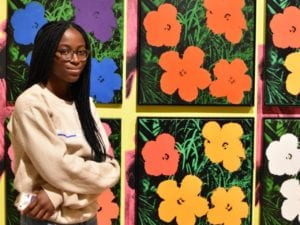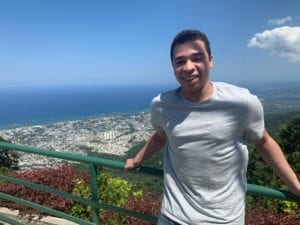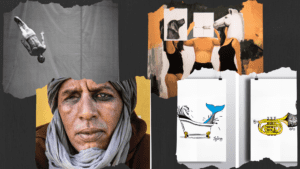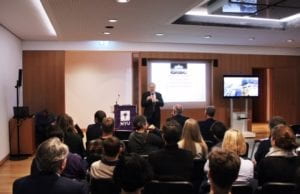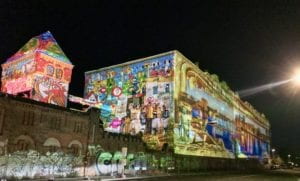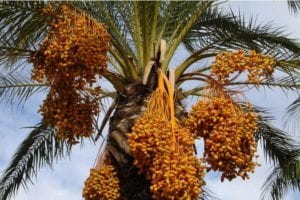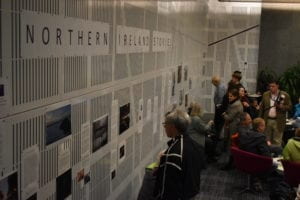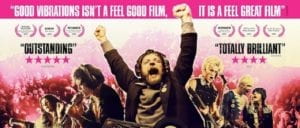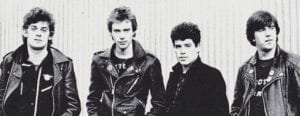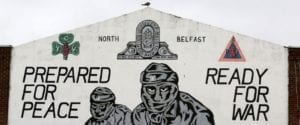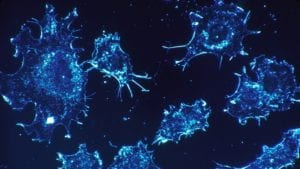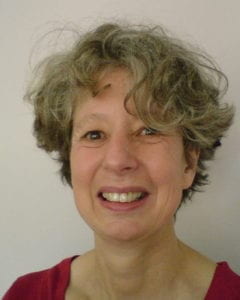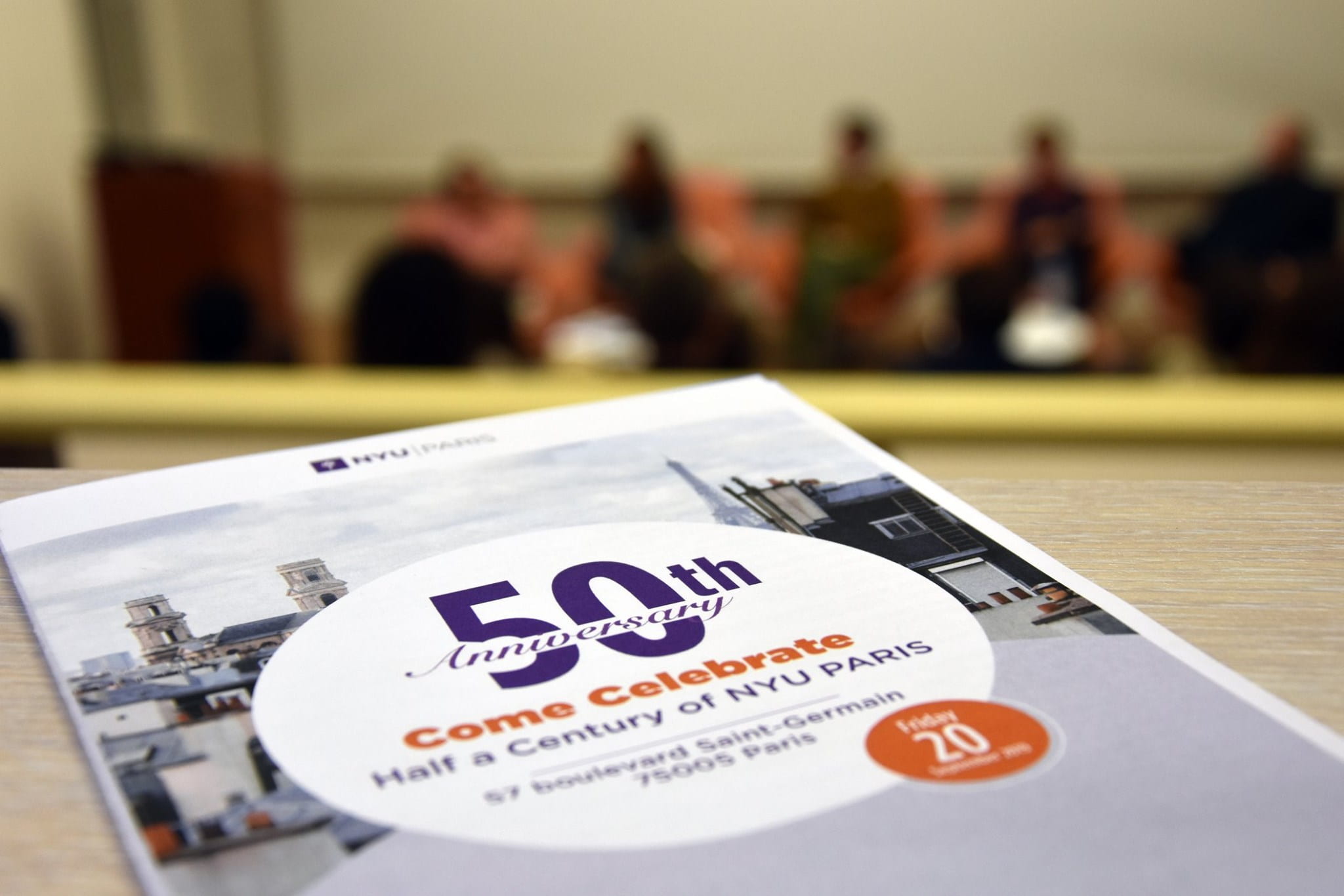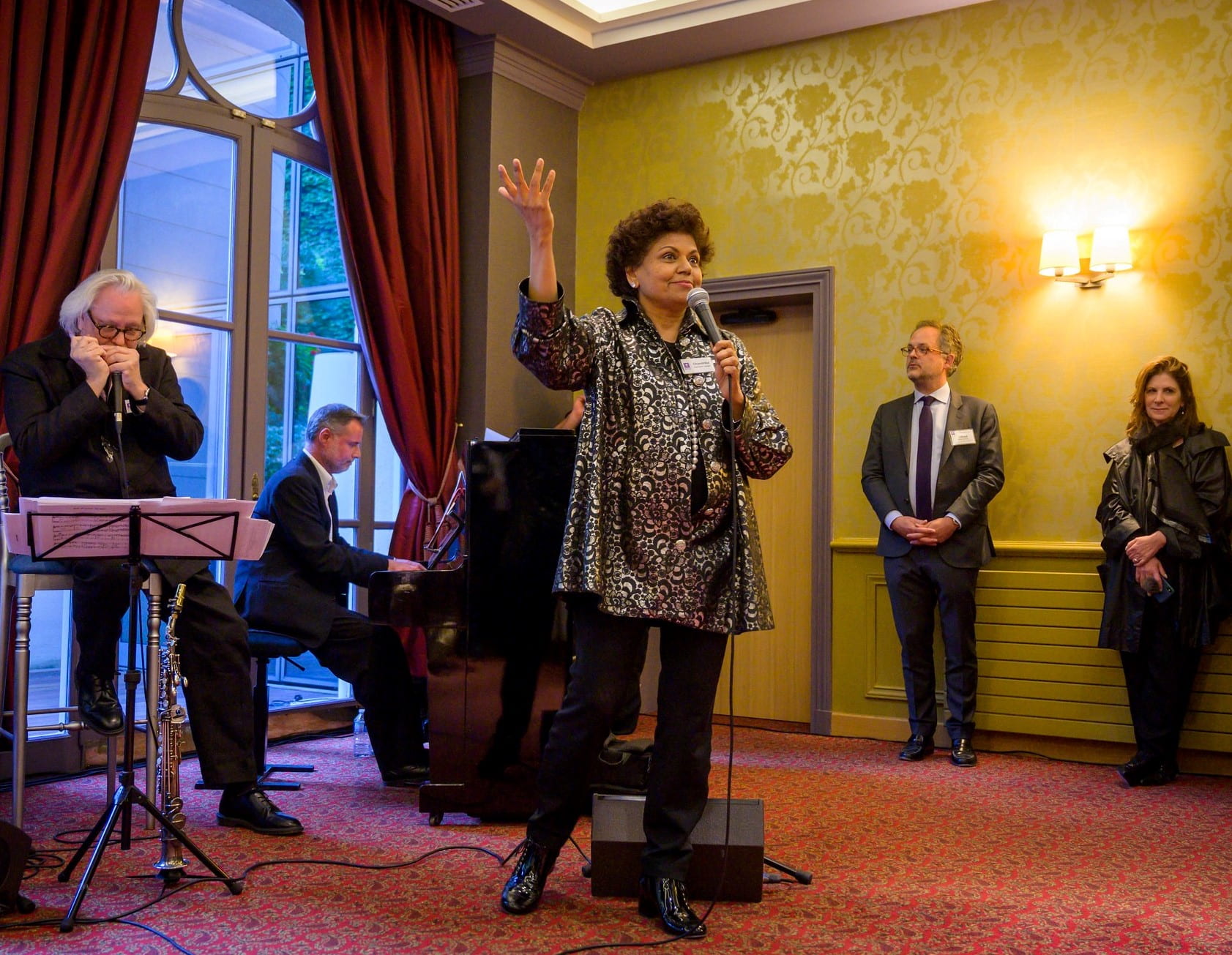NYU Prague student Lachlan Hyatt recently interviewed former political prisoner Mirek Kopt. With the thirtieth anniversary of the fall of communism in the Czech Republic approaching, his piece reminds us of the importance of remembering these histories.
The Czech Republic’s Forgotten Prisoners
By Lachlan Hyatt
PRAGUE – On a cold spring day in 1945, Mirek Kopt took a walk with his father to a shooting range near their house on the outskirts of Prague. They had heard that the range was being used for executing German sympathizers, but the field was empty when they arrived. The day was sunny and there was no fighting in the city; occupying Nazi forces had finally been pushed out by the invading Soviet army. Mirek and his father walked through the weeds of the shooting range before coming across two bodies laying side by side. A man and a woman, seemingly husband and wife, had been executed with a bullet to the back of the head earlier that morning.
“This is when a chain reaction started which proved that one totallity was replaced by another,” said Kopt via an interpreter nearly 75 years later, reflecting on the moment when his contempt of of communism first formed. These beliefs would eventually land him six years of hard labor in a political prison camp.
Since the Fall of Communism in the Czech Republic in 1989, stories of those first targeted by the totalitarian regime, like Mirek Kopt, are being lost. The last of the Czech Republic’s political prisoners, which once numbered over 200,000are dying out, and with them so are the memories of the most brutal era under Communist rule.
“There is a real risk that knowledge about the former political prisoners will die with them,” said Dr. Barbara Vann, a professor of sociology at Loyola University Maryland who has studied this issue, via email. “This subject has not been talked about much even within families of former political prisoners, and it has not received much media attention.”
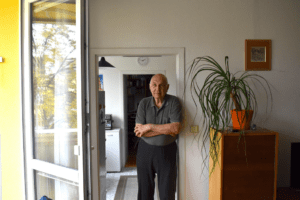 Sitting in his quaint apartment outside Prague in his leather sandals and sweatpants, Kopt doesn’t at first seem like a rebel. His white hair and liver spots make it hard to imagine him printing dissident pamphlets, beating up Communist party members, and stockpiling weapons used to hijack trains in his youth. As he recounts his time battling the Communist state, though, glimpses of the old resistor show through.
Sitting in his quaint apartment outside Prague in his leather sandals and sweatpants, Kopt doesn’t at first seem like a rebel. His white hair and liver spots make it hard to imagine him printing dissident pamphlets, beating up Communist party members, and stockpiling weapons used to hijack trains in his youth. As he recounts his time battling the Communist state, though, glimpses of the old resistor show through.
Kopt remembers vividly one day in late autumn in a labor camp when a guard who particularly disliked him poured a bucket of cold water on him as he slept in the concrete solitary confinement cell.“This was not only a matter of health, it was a matter of life and death and to be honest, if I met this man in my life, I would probably take justice into my own hands,” said Kopt, grinning.
The Communist regime in the Czech Republic began shortly after the Soviet Red Army liberated the country from Nazi occupation at the end of WWII. In 1948, the Communist Party pulled off a coup, becoming the only political party. This new regime forged a strong alliance with the Stalinist USSR and other countries of the Communist Bloc. Dissenting political views were punished harshly.
By the early 1950’s, there were over 30 prisons and labor camps across the country. Thousands of Czechs were arrested for any perceived anti-state activity during the most oppressive years of the regime.
“We realized the only way to fight violence is another violence,” said Kopt.
Kopt began printing anti-commuinist leaflets with his friends while still a teenager but was encouraged to partake in more extreme actions by his uncle, who had deep ties into the resistance. Kopt soon became a member of the Ostriz resistance organization, a group made up primarily by outlawed dissident Boy Scouts. By 1953, Kopt had established his own conspiratorial group. In 1954, Kopt was falsely connected to the murder of a policeman by members of his old Boy Scout troop and was sentenced to ten years of hard labor.
“When I was being investigated, the congress told me they were going to hang me, but I didn’t think much of it because it was a war,” said Kopt. “I didn’t stress out about that, it’s just how things were.”
Kopt was sent to mining camps in the mountains northwest of Prague, less than 10 miles of the East German border. This region, known as the “Jachymov Hell” contained over 12 seperate labor camps and held over a third of the Czech Republic’s political prisoners at this time. The prisoners here would work in shifts, mining uranium to be used by the Soviet Union 24 hours a day everyday of the week. Prisoners toiled in the mines with little training and safety regulations, working to meet quotas so they could receive rations. On the surface, prisoners were abused by armed guards and forced to endure the cold weather of the mountains.
By 1960, the harsh methods of the Czech Communist regime were relaxed and thousands of prisoners were granted amnesty, emptying many camps. Kopt believes the release of these prisoners was an important part of the fight against the Communist regime, which would continue for almost another 30 years.
“The fact remains that when the Communists released thousands of people from prisons and lagers, basically started the erosion of the system,” said Kopt. “Because the civil society didn’t have any clue how many people are being held in jails and lagers for political reasons. Their ideas of who we were was distorted.”
Now, most of the political prisoners have passed away.
“Most of my friends from the lagers are dead now – I think we are three still alive today,” said Kopt.
Many former political prisoners died from cancer after being exposed to extreme levels of radiation from the uranium mining. One camp that processed uranium ore led to so many deaths of prisoners it is now known as “The Red Tower of Death”. Political prisoners were released but never truly escaped the camps. Stigmatized by the state, many struggled to find reliable work and housing and only received small reparations in 2004.
The struggle to preserve the stories of political prisoners has become more challenging in recent years as many Czechs wish to distance themselves from the troubles of the past.
“They are not getting enough information on the recent past and they do not even know where to get this information,” said Kopt regarding Czechs’ views of the past.
Efforts to preserve the legacies of former political prisoners have faltered in recent years. The Confederation of Political Prisoners of the Czech Republic (KPV CR), an organization started to connect former political prisoners, has been facing conflict as more and more of their members pass away. Disagreements emerged when some leaders of the group wanted it dissolved and others want it continued by family members of former prisoners. Troubles in the leadership of the KPV CR reach a point this summer where a guardian of the organization had to be appointed by a Czech court. Because of the inner conflicts, much of the documentation concerning political prisoners have been lost.
With the stories of former political prisoners being forgotten, some in the Czech Republic worry that an oversimplified or inaccurate understanding of history will persist. One such person is Dan Zdarek, a member of the PoliticalPrisoners.EU NGO that runs educational tours of the Jachymov labor camps.
“If people just accept the simple picture of things, that it’s just a place of injustice, then they don’t have a clear idea of what that represents and what that means to communism,” said Zdarek
“Communism is something that’s alive in the minds of everyone living in the Czech Republic because they are the ones whose parents and grandparents lived in the communist system.”
As the 30th anniversary of the Fall of Communism in the Czech Republic approaches, the dissenters of the 70’s and 80’s, like the Czech Republic’s first president, Vaclav Havel, have been celebrated for their anti-Communist effots. For those who faced threats of execution and toiled in the uranium mines, this attention can seem misguided.
“The older prisoners think the dissidents got all the attention, when in reality, their experiences were nothing compared to what they themselves experienced as political prisoners,” said Dr. Vann.
The surviving political prisoners in the Czech Republic today still try to meet up and share their experiences. Events are held annually in Jachymov and around the country, but the number of attendees is getting smaller each year and the events receive little attention from the media. Radiation levels in the Jachymov camps remain high. After decades struggling against the old regime, Kopt can now only sit and observe the nation he fought to make.
“I think it’s a bit of Havel’s fault because we kind of abandoned our mission,” said Kopt. “Our president is basically an agent of Moscow,” referring to pro-Russian Czech president Milos Zeman. “Former Communists still have a lot of advantages in society than regular citizens. But justice needs to be seen in some way, ” he added.
Though the effects of his six years in prison still linger, Kopt is determined to share his stories and make the most of his freedom. He has published books about his time as a rebel and helps give tours of the Jachymov camps he was once imprisoned in, hoping to pass on the memories of his struggle to new generations of Czechs.
“I have my literature and my radio, that’s all I need,” said Kopt walking past a messy watercolor painting posted on his refrigerator. “And my grandson.”
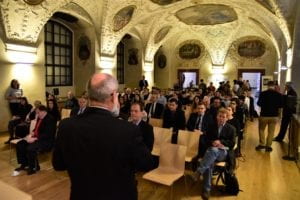 As the 30th anniversary of the Velvet Revolution approaches, NYU Prague took the opportunity to bring together academics, politicians, journalists, diplomats and students to reflect on the friendship between the Czech Republic and America. Gathered in a stunning Baroque Hall that is part of the Dominican Monastery in Prague’s Old Town, speakers were nostalgic, hopeful, and also trepidatious.
As the 30th anniversary of the Velvet Revolution approaches, NYU Prague took the opportunity to bring together academics, politicians, journalists, diplomats and students to reflect on the friendship between the Czech Republic and America. Gathered in a stunning Baroque Hall that is part of the Dominican Monastery in Prague’s Old Town, speakers were nostalgic, hopeful, and also trepidatious. 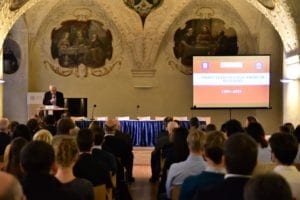 It’s hard to imagine a more qualified group for this topic. Speakers included former Czech Ambassadors to the USA, leaders of NATO talks, the former Czech Ministers of Defense and Foreign Affairs, the economic and political advisers to President Havel, career US diplomats, a correspondent from the Voice of America, and more. A wide array of topics were brought up, but a recurring theme was the importance of allies, not just partnerships that are about transactions. Today, many allyships seem to be under threat in tandem with an isolationist trend sweeping countries around the world.
It’s hard to imagine a more qualified group for this topic. Speakers included former Czech Ambassadors to the USA, leaders of NATO talks, the former Czech Ministers of Defense and Foreign Affairs, the economic and political advisers to President Havel, career US diplomats, a correspondent from the Voice of America, and more. A wide array of topics were brought up, but a recurring theme was the importance of allies, not just partnerships that are about transactions. Today, many allyships seem to be under threat in tandem with an isolationist trend sweeping countries around the world.